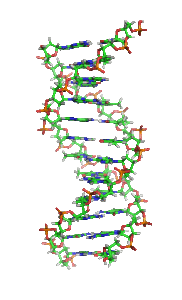MEDICAL WRITING: CARE AND CLARITY
Medical writing, like good hospital personnel, should provide help and answer questions. Judge for yourself how well Robert achieves this in the two samples below.
SAMPLE ONE:
excerpted from the pamphlet Memory Loss and Aging for the NYU Medical Center
* * *
SIGNS OF MEMORY LOSS: POSSIBLE DIAGNOSES
When people have a memory lapses, you often hear, “I must be getting Alzheimer’s!” You never hear, “Maybe I have uripsesis!” or “Pardon my mild cognitive impairment.” Alzheimer’s disease is one possible diagnosis, but there are others.
Psychological causes
Depression is the most common of the reversible conditions that cause forgetfulness. Stressful life events such as relocation or loss of a loved one can undermine mental function. Our center can refer one to an appropriate mental health therapist, who can help relieve psychological pressure and its clouding effects on cognition.
Chronic insomnia is another cause of memory loss that can be treated and reversed.
Physical causes
The brain can be affected by dysfunctions in the body, including: low blood sugar (from diabetes, for example), bodily injury (from falls, boxing, accidents), malnutrition, dehydration, anemia, vitamin or thyroid deficiency, ammonia in the liver, stroke or heart attack damage, brain lesions, AIDS, meningitis, hydrocephalus, encephalitis and syphilis. Adverse reactions to medications must also be looked for, as well as toxins from alcoholism or drug addiction, and poisoning from lead, arsenic, solvents, or insecticide.
Age-associated Memory Impairment (AAMI)
If causes other than aging are excluded, and the memory loss is found not to hinder daily life, the diagnosis is Age-associated Memory Impairment. This is a common condition for people over fifty – the brain slows down with the rest of the body. Some problems concentrating, organizing, or remembering names or words are usual symptoms. “Senior moment” refers to AAMI. Other names are Age Related Cognitive Decline, and Late Life Forgetfulness.
Mild Cognitive Impairment (MCI)
If causes other than aging are excluded, but the memory loss intrudes on daily life, the diagnosis might be Mild Cognitive Impairment. Signs of MCI are: forgetting words and names frequently, and details from last week; getting lost in conversation or in going somewhere new; missing appointments, doing poorly at work, misplacing items, repeating oneself. Anxiety often accompanies these symptoms, but people with MCI tend to deny anything is wrong, and may grow defensive or volatile.
MCI is hard on the caregiver as well as the sufferer. The symptoms improve for few, remain stable for many, but for most progress to Alzheimer’s Disease (AD). A center like ours is particularly helpful in navigating these uncertainties. It helps the caregiver in the close monitoring of the symptoms, is always accessible for counseling and support, and provides up-to-date programs and medicines to reduce or delay further decline.
At this time in America, when the over-50 population is growing larger than ever, researchers have strong evidence that breakthroughs are near. People with MCI are pivotal for research into why symptoms get worse, stay the same, or get better.
* * *
SAMPLE TWO:
Original Introduction for a book on Electrocardiograms, and Robert’s edit:
|
ORIGINAL INTRODUCTION If you’re reading this booklet, you undoubtedly need to learn how to read cardiac ECGs in a concise and meaningful way. Perhaps you’re studying ECGs for your own interest or for a job. Perhaps you’ve been recently diagnosed because of something seen on an ECG and you’d like to understand more. Whatever your reasons, you need to learn about ECGs quickly and easily. While there is an army of ECG-related books, some have way more information than most people need. This booklet leads you through the basics of ECG reading in a fun way. Whoever heard of ECGs being taught by relating a fairytale-like story? This booklet will make it 1) easy for both adults and children to understand how to read an ECG, 2) make it possible for you to discuss most ECGs intelligently and to recognize the basic cardiac rhythm abnormalities and 3) have a good basis from which to delve into advanced ECG literature. The inspiration for this booklet came from my association with many colleagues who needed a basic working knowledge of ECGs in order to do their job. I hope you find reading this both useful and entertaining. |
EDITED INTRODUCTION The inspiration for this booklet came from my work with many colleagues who needed a basic knowledge of electrocardiograms to do their job. There are armies of ECG-related books with way more information than most people need. This one provides a simple, ABC guide to reading ECGs. Its fairy-tale style will help both adults and children learn about ECGs quickly and easily. Perhaps you’re studying ECGs for a job, or just for your own interest. Maybe you’ve received a diagnosis based on an ECG and would like to understand more. Reading this booklet will help you discuss ECGs intelligently, give you a clear understanding of what’s normal and abnormal in heart rhythms, and provide a good basis for any further study of ECG literature. |
AUTHOR’S TESTIMONIAL
“Robert – THANK YOU! What a wonderful job of editing this is. You brought it to life. It was like watching someone take a piece of clay and turn it into the statue of David.” And: “It also really helped to see how you recreated a strong intro to the book. My goal will be to try to keep that voice and clarity flowing smoothly through the subsequent chapters.” |
***************
To get in touch with Robert for a free consult: contact.



